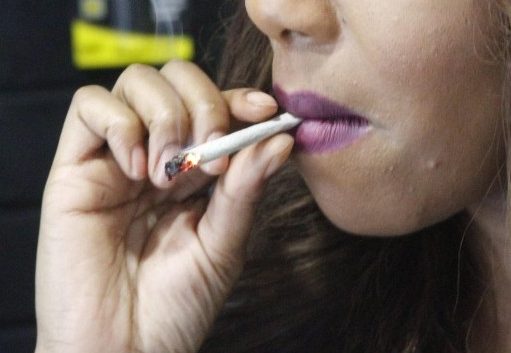AUGUSTA — Members of a legislative committee voted Thursday to reject a bill seeking to legalize marijuana for recreational use in Maine.
However, one of the bill’s sponsors said the real fight will be on the House floor and then likely at the ballot box in 2016, regardless of how things play out in the Maine Legislature this year.
After hours of negotiations and concessions by the bill’s authors, the Legislature’s Criminal Justice Committee voted 6-3 to reject L.D. 1380, which would have created a regulatory system for marijuana, subject to voter approval. Although four committee members were absent, bill supporters said they don’t expect to pick up enough votes to change the outcome.
“It’s disappointing,” said bill sponsor Rep. Diane Russell, D-Portland. “The fight has never been in Criminal Justice. The fight is going to be on the House floor … we have built a defensible bill that we can take to the floor.”
Russell’s legalization bill adopted aspects of a similar measure sponsored by another Portland Democrat, Rep. Mark Dion. Both are considered long shots in the Legislature. Instead, many legalization advocates are banking on two potentially competing referendum campaigns that organizers are hoping to place on the statewide ballot in 2016 through the citizen initiative process.
Maine voters first legalized marijuana for medical use in 1999 and then significantly expanded the law a decade later by adding a system of drug dispensaries and medical marijuana caregivers. Portland became the first East Coast city to legalize possession of small amounts of marijuana for recreational use in 2013 after a voter referendum.
Now, momentum appears to be growing to add Maine to the list of four states – Colorado, Washington, Alaska and Oregon – plus Washington, D.C., where residents age 21 and over can legally possess and use marijuana in private, despite a federal prohibition.
The bill rejected by the committee on Thursday would allow those 21 and older to possess as much as one ounce of pot and set a 10 percent tax rate on marijuana sales. Marijuana tax revenues would flow to public school construction or renovation, substance abuse programs, efforts to raise drug and alcohol awareness among youth, as well as to cover the regulation and licensing system.
Under the compromise unveiled Thursday, the bill would allow up to 45 marijuana retail stores around the state, including up to four in Cumberland County and three in York County. But stores would be allowed only in municipalities where residents vote to allow retail operations.
Russell and others argued that the bills were preferable to the two referendum campaigns because they gave policy-makers more control over the design of the regulatory system for marijuana.
Russell’s and Dion’s bills were the subject of an hours-long public hearing last week that drew a large contingent of opponents from the public health, substance abuse and law enforcement communities.
Scott Gagnon, director of the Maine chapter of Smart Approaches to Marijuana, which opposes legalization, said the coalition was “thrilled and empowered” by the committee’s vote on Thursday.
“We came out en masse last week to implore the Criminal Justice and Public Safety Committee to consider the unquestionable impacts these proposals would have on our youth and the future of our state,” said Gagnon, whose organization helped organized the opposition. “The committee understood very well that to continue to ensure safe and healthy communities for our youth to grow and thrive, we must not adopt policies that would increase access and availability of drugs.”
Supporters of the bills expressed disappointment with the committee vote, but said the negotiations produced a better and stronger bill.
The measure is expected to generate lengthy debate and discussion in the full Legislature.
Copy the Story LinkSend questions/comments to the editors.




Success. Please wait for the page to reload. If the page does not reload within 5 seconds, please refresh the page.
Enter your email and password to access comments.
Hi, to comment on stories you must . This profile is in addition to your subscription and website login.
Already have a commenting profile? .
Invalid username/password.
Please check your email to confirm and complete your registration.
Only subscribers are eligible to post comments. Please subscribe or login first for digital access. Here’s why.
Use the form below to reset your password. When you've submitted your account email, we will send an email with a reset code.